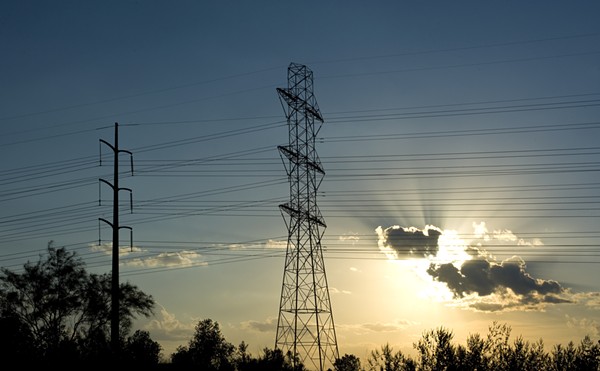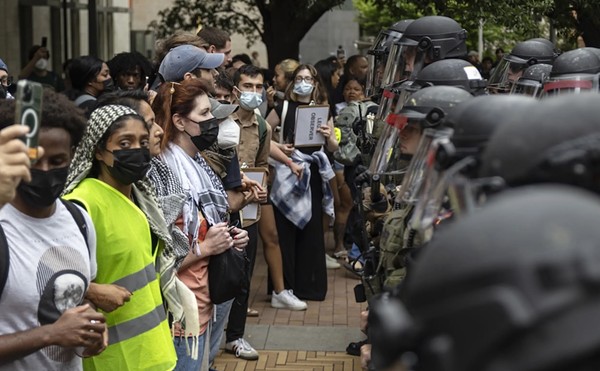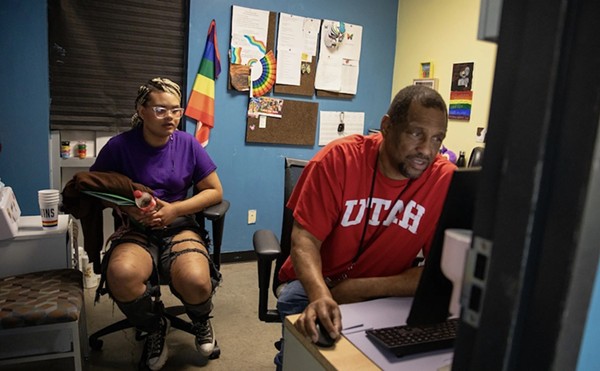Southwest Research Institute has a contract with the U.S. Army Corps of Engineers to monitor three 5-kilowatt Proton Exchange Membrane fuel cells in the base's private homes. The cells work with a natural gas reformer and convert the gas directly into electricity, silently and with little to no emissions. The demonstration project is scheduled to run the course of one year.
"These projects will help demonstrate how fuel cell technology has residential app-lications, said Michael Binder, the fuel cell program manager for the U.S. Army Construction Engineering Research Laboratory.
Binder explained that fuel cell technology was born in 1991, and that Congress had appropriated $37 million for its development on military bases. The plan was to install fuel cells in base housing and then to persuade the local public utility to "babysit your fuel cell unit in the back yard. You put them up in real places."
Binder said fuel cells have been useful in commercial settings and by transportation and aerospace sectors, "but definitely have great potential for homes in the not-so-distant future."
Brooks City-Base also is the site of another fuel cell demonstration at its Challenger Learning Center. The fuel cell unit generates electricity and heats water, and is a result of 11 agencies, including City Public Service, that have joined as partners to promote the new technology.
So what does this mean for San Antonio? Is that all there is to it?
Not if Dub Smothers of Boerne has anything to say about it - and he certainly does. "If $15 million could bring the hydrogen and fuel cell development leader Toyota to Texas, how much, or how little, do you think it would take to bring an entire Fuel Cell Revolution to Texas? A revolution projected to be far larger than the computer revolution," Smothers said via e-mail.
"I do not see it taking too much in funds for companies if Governor Rick Perry would just take the lead and encourage the legislature to do three things," he added. The to-do list includes passing a fuel cell bill with incentives that wouldn't cost the state or taxpayers, but which would encourage the purchase of fuel cells; start installing fuel cells in colleges, state and other buildings; mandate that its agencies such as the Lower Colorado River Authority begin installing fuel cells to supplement its current electric grid system.
Smothers said he believes that those three steps "would put Texas on the road to again become the energy leader for our nation, while at the same time encourage all of our state's electric utilities, businesses and residences to use the incentive and begin installing their own fuel cells, even in rural areas."
But, what else is going on with fuel cell technology in San Antonio. How can one learn more about it? Enter Greg Brady, fuel cell technology coordinator at St. Philip's College. He teaches a course on fuel cells at the college's Southwest Campus, through the continuing education program and calls this technology "a glimpse of the future."
"This will generate more jobs than the computer revolution," Brady explained. "This could be the biggest thing to happen in the city, it could dwarf Toyota, and it could enlist Toyota. They have announced they will be making fuel cell powered SUVs in five years, and their stated goal is to make SUVs in San Antonio. Our challenge is to tell Toyota 'why don't we make them here?' That's the sales job of the city to say 'Thank you, but we want more.' We could become the de facto largest manufacturing site in the United States, and that would help attract other companies as well. The city absolutely has to focus on this as a business development opportunity. This will be a $1.7 trillion industry by the year 2020."
Brady said fuel cells work in every application, from internal medicine to power plants. "Internal combustion does not work in a watch. The market is incredibly broad. Intel has formed a consortium to have fuel cells in laptops by 2004. Every major corporation in the world has a fuel cell plan." •
Various groups, including the Department of Energy, have slated a fuel cell technology seminar for November 2004 in San Antonio. For more info about the technology, visit SWRI's Web site at www.swri.edu/fuelcell/default.htm


















